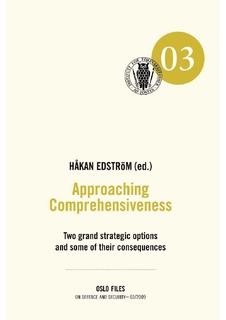Approaching comprehensiveness
Others

Åpne
Permanent lenke
http://hdl.handle.net/11250/99487Utgivelsesdato
2009Metadata
Vis full innførselSamlinger
Sammendrag
Experience from international operations has shown us that coordination between a variety of actors, as well as functional sectors, from the international community is essential to achieving key objectives necessary for lasting security. NATO allies have agreed that a comprehensive approach is required to meet the challenges in different operational environments. The issues discussed in this study revolve around the interplay between individual member states and multilateral organisations. The focus of the study is the situation of the small states generally and of Norway in particular. The critical questions are what grand strategic options there are for Norway when committing military resources to multinational crisis management, and the consequences they might have on the Norwegian Armed Forces. The variable “provide military resources” has been given two defined outcomes: the holistic approach and the atomistic approach. The critical difference is the national framework under which the national military units participate in international operations. With the former approach the military instrument of power is coordinated with the other instruments at the disposal of the providing state, be they diplomatic or economic. With the latter the comprehensiveness of combining the different instruments is orchestrated at the multinational level and the contribution of the small state will in this case be purely military. The Norwegian context is explored from a number of academic perspectives: history, political science, military theory, law, ethics, information and gender. Based on the experiences gained from previous international peace support operations, a conclusion can be drawn: there are different needs in different regions of the area of operation. The current operation in Afghanistan is no exception and therefore serves as an example in the ensuing discussion